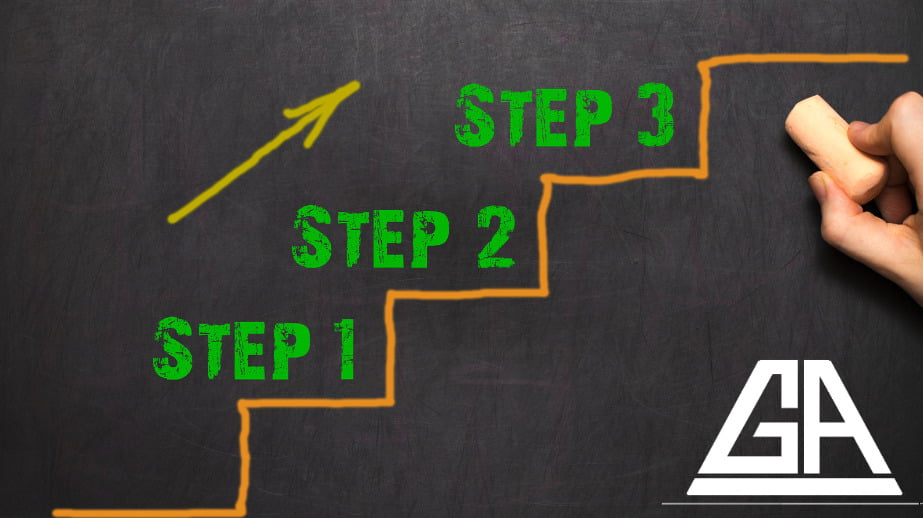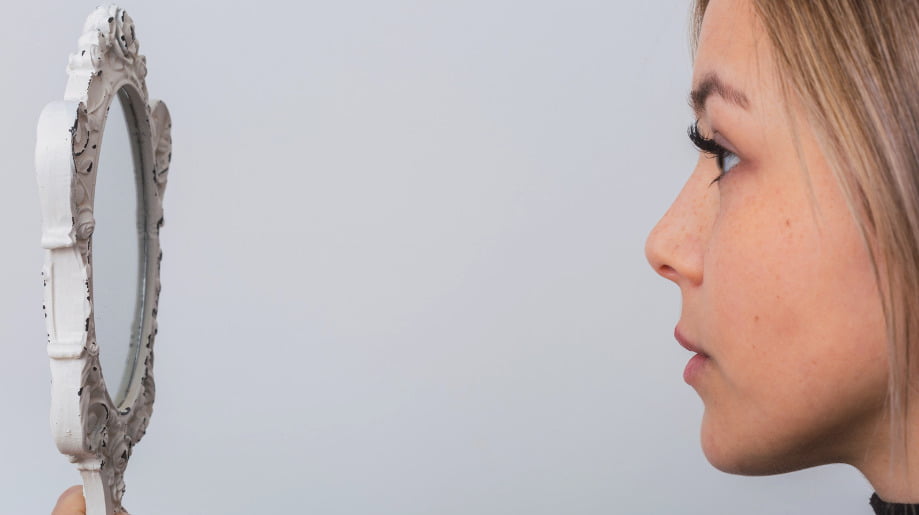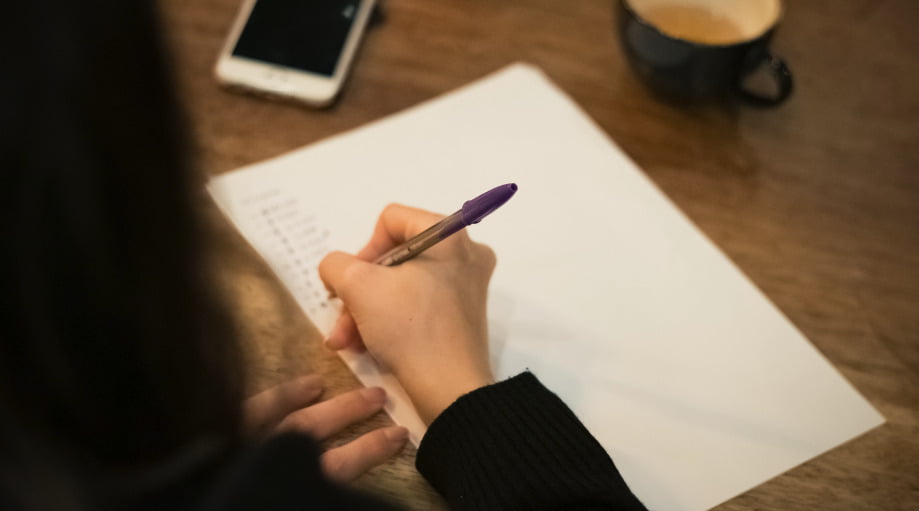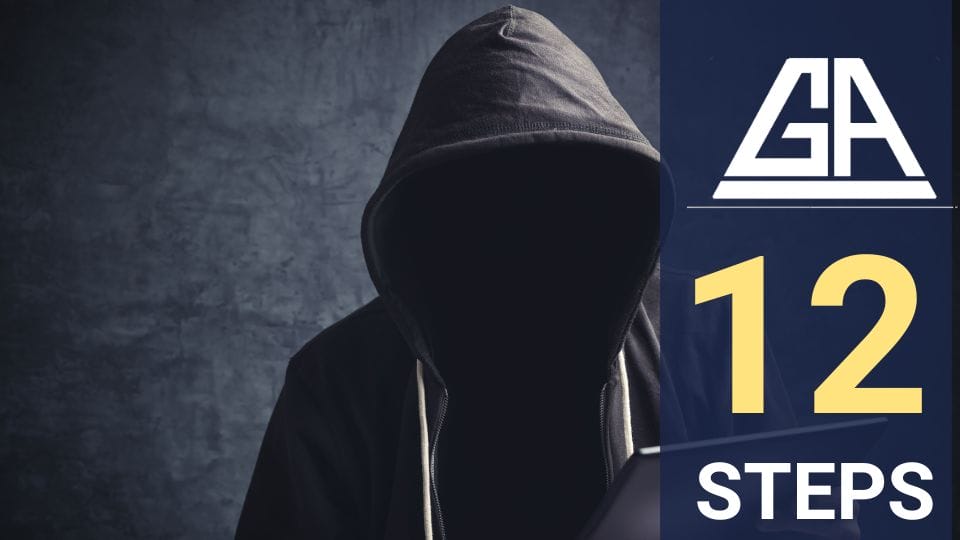This article explores how these twelve steps can be used for recovery and offers advice on using them successfully.
For those unfamiliar with it, Gamblers Anonymous (GA) is a fellowship of men and women struggling with a compulsive gambling problem. It’s modeled after Alcoholics Anonymous’ Twelve Steps program, first developed in 1935. The GA version was adapted in 1960 and provides instruction for individuals looking to break free from their dependence on gambling activities such as sports betting, lotteries, poker, roulette, etc.
This article aims to give readers an understanding of what the GA 12 steps entail so they can make informed decisions about whether or not they should pursue them. We’ll discuss each step in detail while also providing helpful tips along the way.
QuitGamble.com is an alternative to GA. On QuitGamble, pain is the cause of addiction, and we help people deal with it by helping them understand that gambling is doing something for them. When they know what causes the addiction, we help them deal with these areas of their life. If you want to stop gambling addiction and are looking for an alternative to GA, then QG might be a good choice.
Introduction & Overview
Gamblers Anonymous is a non-profit organization that helps individuals struggling with compulsive gambling. The GA Twelve Steps are the core of their program, which provides an outline for recovery from addiction to gambling. These 12 steps provide guidance and support through each stage of the process.
The first step in the Gamblers Anonymous program of Twelve Steps involves admitting powerlessness over one’s urge to gamble compulsively. It can be challenging for those dealing with this issue for many years, but it is a vital starting point for treatment and making progress. Step two encourages gamblers anonymous members to turn to God or another higher power; research suggests that having faith in something greater than oneself can reduce anxiety associated with addictive behaviors like problem gambling.
Step three calls on members to consciously give up their destructive behavior (stop gambling) and seek help from others within the anonymous member group. In contrast, step four requires them to think about how they have harmed themselves and others due to their gambling habits. In steps five through eight, anonymous members also must work diligently towards repairing relationships damaged by their gambling addiction and become honest about any wrongdoings they may have committed during active addiction.
The last few steps focus on developing humility and helping others suffering from compulsive gambling find relief. By following and practicing these principles in twelve simple yet powerful steps, individuals with gambling addiction can learn how to manage urges, understand why do people gambling, build healthy coping skills, and ultimately live more fulfilling lives without relying on harmful addictions such as problem gambling. In other words, how they can stop gambling.

Step 1- We Admitted We Were Powerless Over Gambling – That Our Lives Had Become Unmanageable.
Simplified: Admit that you can’t control your gambling and that it’s causing problems.
Gamblers Anonymous (GA) provides a 12-step recovery program that has successfully helped numerous compulsive gamblers regain control of their lives and relieve gambling addiction. Step 1 is a crucial initial step for Gamblers Anonymous members – admitting their powerlessness over gambling and the unmanageability of their lives due to compulsive behavior.
This acknowledgment serves as the basis for all other steps in the program. By accepting this reality, members build trust within themselves and those around them who can support their recovery. This admission also allows members to understand that they can restore sanity and order by connecting with God or another higher power.
Embracing powerlessness and powerless over gambling might be challenging initially, but it is essential for understanding the situation and making progress. By recognizing the damaging and reckless nature of gambling behaviors, members comprehend the importance of acting against their problem before it worsens. It is vital to remember that there is always hope when one is willing to seek help from other anonymous gamblers and ask for guidance from a higher power on the path to recovery.
Step 1 affirms GA members are not alone in their battle against problem gambling. Support is available from fellow anonymous gamblers who have experienced similar situations and can offer valuable insights into overcoming thoughts and behaviors related to gambling in our lives. GA members collaborate to ensure everyone involved can recover from this issue and progress towards a brighter, gambling-free future.
Step 2 – Believe That A Power Greater Than Ourselves Could Restore Us To A Normal Way Of Thinking And Living.
Simplified: Believe that a higher power or something greater than yourself can help you stop gambling.
In the second step of Gamblers Anonymous’ 12 Steps program, members believe that a power greater than themselves can restore them to a standard way of thinking and living. This step is a significant aspect of the recovery process for many participants.
Firstly, members must recognize that their power alone is insufficient to conquer their gambling addiction. Turning to something more significant, such as God or a higher power, is necessary for a successful recovery journey. By seeking help and guidance from a higher power, members humbly request support in restoring their health and balance.
It is also crucial that, while seeking help from this higher power, members carry out a searching and sometimes fearless moral and financial inventory and demonstrate a willingness to make amends wherever needed. Acknowledging faults can be challenging, but it brings members closer to sobriety through the Gamblers Anonymous structure.
The 12-step program offers powerful tools for achieving lasting results in overcoming a gambling addiction:
- Embracing the idea of a higher power that can support all challenges.
- Acting by requesting help from this higher power.
- Utilizing the resources available through Gamblers Anonymous meetings and programs.
Members now accept that there is something beyond themselves capable of helping them achieve freedom from problem gambling behaviors. This belief is a crucial foundation for ongoing success within the Gamblers Anonymous program.
Step 3 – Made A Decision To Turn Our Will And Our Lives Over To The Care Of This Power Of Our Own Understanding.
Simplified: Decide to let that higher power guide your actions to overcome your gambling problem
In Greek mythology, the Sirens lured sailors to their demise with their captivating voices. This concept also applies to those grappling with addiction, who are drawn in by its appeal and struggling to resist. However, this cycle can be broken by surrendering one’s will and life to a power that exceeds personal strength.
It is crucial to entrust one’s will and life to the care of this more potent force, a higher power or a spiritual entity. Believing that through reflection and contemplation and by practicing specific principles, this higher power can restore balance and rational thinking is essential.
According to GA, undertaking this step is challenging but vital for overcoming addiction and returning to typical life. It necessitates courage and determination. Traits that some may not believe they possess. Still, initiating change is essential. It is worth noting that there is no single definition of a “higher power” or spiritual entity; individuals have diverse beliefs, and respecting each other’s understanding is essential while working collectively to regain control of their lives.
By consciously placing trust in a power greater than oneself, doors open for healing and growth, allowing hope to resurface. Accepting responsibility for personal addictions enables individuals to recognize that they ultimately hold the key to freedom from their struggles.

Step 4 – Made A Searching And Fearless Moral And Financial Inventory Of Ourselves.
Simplified: Look closely at your actions and feelings and be honest about your mistakes.
Step 4 conducts a thorough and honest moral and financial self-assessment. It involves an honest evaluation of one’s life to identify areas needing improvement. The step involves carefully considering interactions with others, objectively evaluating moral and financial decisions, and examining current thoughts and behaviors to identify areas for improvement.
The inventory is approached with openness and without judgment. Direct amends are made where possible, except in cases where it may cause additional harm or injury to another individual or oneself. Promptly admitting mistakes can aid in repairing relationships and boosting self-esteem.
After implementing this introspective approach, there is a sense of empowerment, as a clearer understanding of the present situation and necessary next steps is achieved. With this power and new perspective, actions can be taken to improve various aspects of life, fostering increased peace of mind and purpose.
Awareness is essential – routinely reflecting on oneself to address emerging issues before they escalate or become irreparable. Staying conscious of internal states and external factors creates growth opportunities, ultimately leading closer to recovery from gambling addiction.
Step 5 – Admitted To Ourselves And to Another Human Being The Exact Nature Of Our Wrongs.
Simplified: Share your mistakes and what you’ve learned about yourself with someone you trust.
In Step 5, the exact nature of one’s mistakes must be acknowledged. People struggling with compulsive gambling must realize that the issue is beyond their control and accept it. The first step is admitting powerlessness over gambling, recognizing our own understanding of the harm caused by us and the power of addiction, and taking responsibility for it.
Next, it is necessary to share the details and nature of our wrongs and these wrongs with another person. The process helps to establish accountability and promotes recovery. Self-reflection and corrective measures can be taken by openly discussing the consequences of one’s actions.
For this step, individuals can seek out trustworthy confidants, such as those in a Gamblers Anonymous meeting, to provide support throughout the process. These confidants can help identify areas for improvement and offer guidance when needed. Through their insights, anonymous gamblers can better understand the impact of their actions on others and those whose gambling habits have harmed.
By adhering to the guidelines of Step 5, one of the most challenging tasks on the path to recovery can be accomplished: being honest with oneself and others to embark on a healthier journey away from betting addiction.
Step 6 – Were Entirely Ready To Have These Defects Of Character Removed.
Simplified: Be ready to make changes and let go of the negative habits and behaviors from gambling.
After acknowledging one’s wrongs in Step 5, it is time to move on to the next step. It involves being fully prepared to address and remove character flaws. It’s essential for recovering from compulsive gambling. It is important to approach this step with confidence and self-trust and be ready and willing to make amends for moral and financial shortcomings.
By being transparent about one’s wrongs, healthier thought patterns can be established, eliminating the need for lies or excuses to cover up past mistakes. The willingness to make amends is a crucial aspect of the healing process. It requires individuals to take responsibility for their actions and develop a more accurate perspective.
Taking action to address issues related to problems is another essential component. If there are steps that can be taken to move towards a healthier lifestyle, it is better to begin immediately rather than wait. This way, the individual can work towards a point where betting no longer holds power over injuring them or others.
Although some discomfort may arise when considering the removal of character flaws, the effort is worthwhile in the long run. Pursuing this path brings individuals closer to freedom from compulsive and pathological gambling and the negative consequences that come with it.
Step 7 – Humbly Ask God To Remove Our Shortcomings.
Simplified: Ask the higher power or the force greater than yourself to help eliminate these bad habits.
Individuals humbly asked God (of GA Understanding), or a higher power greater than ourselves could be, to help remove their shortcomings. To achieve this, they relied on the recovery program. The members acknowledged that a force greater than themselves could help them regain their sanity and become free from addiction. They also sought support for their family members affected by addiction and aimed to find relief from negative thoughts or actions through practices such as prayer and meditation.
Opening for a spiritual solution allowed individuals to accept the truth about themselves, even if they believed it was uncomfortable. They aim to live with integrity and honesty, even if it leads to challenging conversations or situations. The ongoing process is part of their path toward self-improvement and healing.
Remaining humble during these moments can be difficult, but reflecting on the progress made helps keep individuals grounded. Even when faced with temptation, they find ways to stay positive and focused on finding inner peace for themselves and those around them. Through faith, they find the courage to make decisions that bring them closer to lasting change.
The journey has been filled with ups and downs, but each step brings them closer to healthier lives free from the grasp of addiction. This progress is attributed to humbly asking a higher power, as they understand it, to help remove their shortcomings.

Step 8 – Made A List Of All Persons We Had Harmed And Became Willing To Make Amends To Them All.
Simplified: Make a list of the people you’ve hurt because of your gambling and be willing to fix the problems you’ve caused.
This step involves creating a list of all the people harmed due to one’s wagering habits and being prepared to make amends with them. Recognizing that making amends to others is a crucial part of personal restoration is essential. (It removes some of the pain caused by the addiction.)
Many individuals with betting problems may not realize their actions’ impact on those around them, including family, friends, and colleagues. The 8th step emphasizes that recovery is about personal improvement and addressing the harm caused to others by one’s addiction. It highlights the need to acknowledge that a gambling problem can hurt the individual and those close to them or even strangers encountered while wagering.
Although it can be challenging, breaking free from being a compulsive gambler requires confronting these issues. Creating a list of those harmed encourages reflection on one’s actions and consideration of the appropriate amends to simplify healing in these relationships. An apology may suffice in some cases, while more tangible reparations might be necessary in others.
Despite the effort involved, taking responsibility for one’s behavior is crucial to recovery from addiction and benefits both the individual and those affected by their actions. Step 8 is a vital part of the Gamblers Anonymous 12 Steps program and should not be overlooked by anyone seeking to address their gambling problems.
Step 9 – Make Direct Amends To Such People Wherever Possible, Except When To Do So Would Injure Them Or Others.
Simplified: Apologize and make things right with those people, unless doing so would hurt them or others.
Step nine of GA is important in the recovery process for many gamblers. The step involves making direct amends to those who were hurt financially or otherwise by the gambler’s actions while betting. This step must be taken before any further progress can be made toward becoming a successful recovery problem gambler.
Many gamblers find it difficult to make restitution for their past wrongdoings and feel powerless to carry out such actions alone. The support of other members within the organization and the power of group dynamics enable them to take responsibility for their past behaviors related to their addiction and move forward. By taking individual steps such as attending meetings, talking with sponsors, and participating in activities alongside others within the community, they can gain the strength to make direct amends.
Making direct amends to such people requires courage and humility on behalf of the recovering gambler; however, certain conditions must be met when doing so in order not to injure those affected by his/her behavior. For example, suppose someone has been severely hurt due to financial losses suffered by the problem gambler. In that case, he/she should seek professional assistance before conversing with the said person about how best to handle repayment of funds lost due to gambling activity. Furthermore, if a situation would prove too emotionally charged or volatile for either party involved, seeking professional help may also be advised before proceeding with reconciliation efforts.
In addition to carrying out this ninth step as part of one’s recovery journey, it is also encouraged that recovering gamblers use it as an opportunity to pass on knowledge gained through experience and share information about how joining Gamblers Anonymous helped him/her recover from his/her addiction so that more individuals struggling with similar issues can benefit from it too. By having enough faith in oneself and being willing to accept help along the way, everyone has the ability and power necessary to carry this message forward into communities near and far away.
Step 10 – Continued To Take Personal Inventory, And When We Were Wrong, Promptly Admitted It.
Simplified: Keep checking your actions and thoughts, and when you make mistakes, admit them and correct them immediately.
Step 10 of the Gamblers Anonymous 12 Steps focuses on maintaining a continuous personal inventory and promptly admitting any mistakes. This step is necessary for ongoing recovery from gambling addiction. It involves taking immediate action when potential warning signs of relapse arise, such as engaging in self-assessment or examination. This step also requires honest self-evaluation without concealing anything.
After thoroughly examining one’s behavior before, during, and after engaging in gambling activities, such as playing lottery tickets, it becomes clear that admitting mistakes when they occur is crucial. Acknowledging errors does not signify weakness; it contributes to personal growth by increasing self-awareness and helping avoid similar mistakes.
Another aspect of personal inventory includes reflecting on decisions made while gambling. Any instances where poor choices came to believe or were influenced by fear or other negative emotions, like greed or envy, should be identified and addressed. Conducting an honest assessment helps to recognize behavioral patterns that might lead to unhealthy outcomes.
At this point in the GA journey, having the courage and humility to consistently conduct personal and financial inventory is vital for preventing relapse into addictive behaviors, such as excessive lottery ticket purchasing. Maintaining this daily practice makes learning from past experiences more manageable and ultimately contributes to long-term freedom from compulsive gambling habits.
Step 11 – Sought Through Prayer And Meditation To Improve Our Conscious Contact With God As We Understood Him, Praying Only For Knowledge Of His Will For Us And The Power To Carry That Out.
Simplified: Keep growing and learning about yourself through prayer or meditation, and stay connected to the higher power helping you.
Step 11 serves as a link between daily life and the spiritual solution domain. It provides an opportunity to continue to take a personal step back and gain clarity on how to live most effectively. The step may involve prayer, meditation, or other activities that connect individuals with a higher power or purpose. Some practices for fostering this connection include:
- Cultivating a spiritual relationship with a higher power
- Setting aside daily time for reflecting on spirituality
- Seeking guidance during challenging decisions
- Recognizing blessings throughout each day
- Focusing on spiritual growth through contemplation and prayer
- Praying regularly and consistently
- Recording thoughts during prayer and reflection
- Meditating daily, if possible
- Finding inner peace and strength by living responsibly
- Leading us all our affairs to a normal life of honesty, integrity, and humility
- Embracing laughter and joy in all forms
- Practicing gratitude each day for life’s gifts
Step 11 encourages more frequent moments of connection with a higher power, as everyone understands. Allowing space for self-reflection helps individuals make decisions based on a higher purpose rather than solely on personal desires. Re-establishing this connection with faith empowers individuals and creates a solid foundation of self-trust.
Step 12 – Having Made An Effort To Practice These Principles In All Our Affairs, We Tried To Carry This Message To Other Compulsive Gamblers.
Simplified: Share your experience, strength, and hope with others with gambling problems, and keep practicing these steps in your life.
Efforts are being made to help others achieve the same spiritual awakening experienced personally. Sharing knowledge and experiences with those still battling addiction, discussing successes and failures, and offering advice on maintaining abstinence from gambling is a priority.
Group prayers and providing a listening ear and emotional support ensure that others know they are not alone in their recovery journey. Sharing personal progress gives hope to those who may have felt hopeless.
Gambling disorder is now part of the American Psychiatric Association DSM-5. Raising awareness about compulsive gambling disorder within communities is another crucial aspect. Outreach programs, public talks, and advocacy work help increase understanding and reduce the stigma of seeking help for the issue.
By practicing these principles in various aspects of life, hope and encouragement is conveyed to support other compulsive gamblers.
Conclusion
Gamblers Anonymous has a very different approach to helping gambling addicts than QuitGamble.com. While Gamblers Anonymous is officially not affiliated with any religious group or political organization, some individuals may perceive the 12-step ideology of surrendering one’s issues to a higher power as having religious connotations. Mentions of prayers, asking god for help, and seeking help from a higher power are clearly based on religious thinking.
The 12 steps of Gamblers Anonymous are a journey that takes time. It is perseverance to overcome an addiction such as betting. Like any other journey, there will be moments where you’ll want to turn back or give up, but the rewards from completing these steps can be life-changing.
It’s important to remember that although your friends and family may not understand why you’ve chosen this path, they can still provide tremendous support and encouragement during your recovery process. They may also know about resources you might find helpful for those people struggling with gambling addictions.
Finally, no matter which route you choose on your voyage towards healing and recovery, never forget that it is possible to reach the end destination – sobriety. You have the strength within yourself to make positive changes in your life and live a healthier lifestyle without relying on addictive behaviors such as gambling. Don’t let anything stand in the way of achieving your goals! If GA works for you, we couldn’t be happier! Good luck!

GA: Once an addict always an addict. . .
We refuse to accept that! Our Stop Gambling Masterclass is an modern alternative to GA!

 English
English Español
Español Français
Français Português
Português Svenska
Svenska